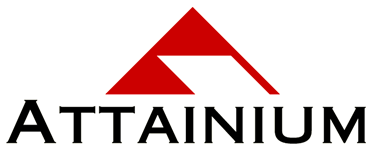
Business Continuity NewsBriefs - February 8, 2017
These NewsBriefs are produced and delivered weekly by Attainium to keep our friends and clients current on topics relating to Business Continuity, Disaster Recovery and Crisis Management.
Cyber Security
February 8, 2017 - We hope there isn't anyone walking around thinking they are immune to cyber attacks, because it just isn't so. As we've said before, it's not if, it's when. But how do you protect your organization? This week's articles offer information and some suggestions on how to improve your cyber security... and recognize that insiders can cause more vulnerability than outsiders.
QUOTE OF THE WEEK
"If you spend more on coffee than on IT security, you will be hacked. What's more, you deserve to be hacked."
-- Richard Clarke, Author --
1. Ten Cyber Security Predictions for 2017
For cyber security, predicting the future is not nearly as scientific as tracking the next major hurricane or earthquake, but certainly does follow trends and patterns. While technology evolves from on premise resources to the cloud, the reality of drone swarms becoming a weaponized medium for attacks, and governments openly performing cyber-attacks, we can see that if it is connected to the net, it is fair game for an attack. Everything from personal systems to voting machines are valid attack vectors and, surprisingly, systems not considered worthwhile for an intrusion, become key beach heads for advance cyber-attacks.
https://www.beyondtrust.com/blog/ten-cyber-security-predictions-2017/
2. The Biggest Cybersecurity Threats Are Inside Your Company
When security breaches make headlines, they tend to be about nefarious actors in another country or the catastrophic failure of technology. These kinds of stories are exciting to read and easier for the hacked company to admit to. But the reality is that no matter the size or the scope of a breach, usually it's caused by an action, or failure, of someone inside the company.
https://hbr.org/2016/09/the-biggest-cybersecurity-threats-are-inside-your-company
3. The CFO and Cyber Security
In a recent survey of CFOs and corporate finance executives, half of respondents cited cyber threats as a chief concern. A Protiviti survey of 650 CFOs, vice presidents of finance, corporate controllers, and other finance management professionals further found that the second highest priority for CFOs in 2016 was cyber security risks, behind only margins and earnings performance. Cyber breaches are arguably the biggest threat facing ALL companies at the moment, and the responsibility for ensuring that their data is protected is no longer just the IT department's, it is the duty of all C-suite executives to play an important role in safeguarding their organization, its assets, and its customer's interests. And none more so than the CFO.
https://channels.theinnovationenterprise.com/articles/the-cfo-and-cyber-security
4. Cybersecurity: A Small Business Guide
Cybersecurity is important for companies of all sizes. Small businesses are just as at risk for cyberattacks as larger companies, and should be prepared for a breach at all times. According to a report by Keeper Security and the Ponemon Institute, 50 percent of small businesses have been breached in the past 12 months.
http://www.businessnewsdaily.com/8231-small-business-cybersecurity-guide.html
5. 13 Security Solutions for Small Business
Cybersecurity is no joke. Whether you have a website, online accounts or any type of Web-based infrastructure, you are at risk for a cyberattack. Although the public typically only hears about cyberattacks against high-profile companies, banks and government websites, small businesses make prime targets for cybercriminals, competitors and disgruntled parties. Yet, due to their lack of resources, small businesses have the least-protected websites, accounts and network systems -- making cyberattacks a relatively easy job.
http://www.businessnewsdaily.com/6020-cybersecurity-solutions.html
6. Cybersecurity's Human Factor: Lessons from the Pentagon
The vast majority of companies are more exposed to cyberattacks than they have to be. To close the gaps in their security, CEOs can take a cue from the U.S. military. Once a vulnerable IT colossus, it is becoming an adroit operator of well-defended networks. Today the military can detect and remedy intrusions within hours, if not minutes. From September 2014 to June 2015 alone, it repelled more than 30 million known malicious attacks at the boundaries of its networks. Of the small number that did get through, fewer than 0.1% compromised systems in any way. Given the sophistication of the military's cyberadversaries, that record is a significant feat.
https://hbr.org/2015/09/cybersecuritys-human-factor-lessons-from-the-pentagon
Copyright (C) 2017 Attainium Corp - All rights reserved.

